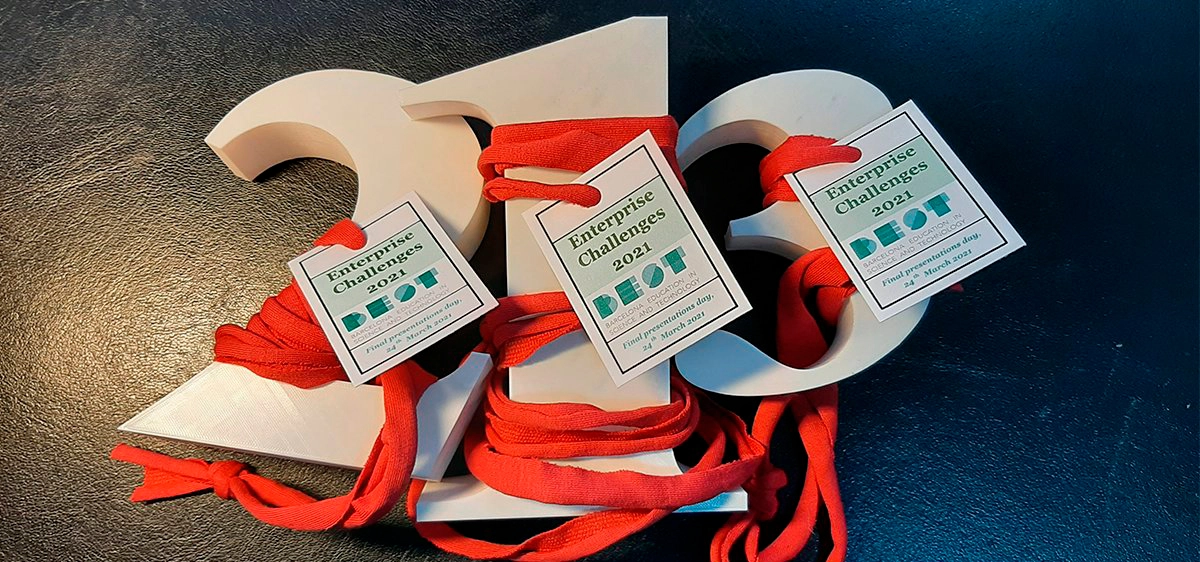Trends
Trends
AUG
11
2021
Spain
Innovative solutions for healthcare professionals
In the midst of a pandemic and an unimaginable health crisis, the latest edition of the Enterprise Challenges has paid a special tribute to the medical world. This contest, which is now in its third edition, seeks to promote open innovation through cooperation between companies and universities such as the Politècnica de Catalunya (UPC) and Pompeu Fabra (UPF). These two campuses offer a degree in Industrial Technology and Economic Analysis and their students usually have much to contribute to these calls for proposals. The event, organised by the BEST (Barcelona Education in Science and Technology) foundation, has the goal of joining forces to find innovative solutions to business challenges and societal problems.
For the second consecutive year, the team sponsored by Cellnex has won first place out of the 16 participating groups. In this fully online edition, Yanzhu, Nico, Aina and Carlos, students of the combined degree in technology and economics taught jointly by UPC and UPF, took up the challenge of improving the management of medical equipment in a hospital to achieve maximum efficiency. The result was Meditrack, a system capable of monitoring and prioritising portable medical equipment in a hospital complex.
According to its promoters, it can save four working hours a day and €35,918 a year. “This was the reward for work that was creative, intense and not without its challenges, plus it was carried out in record time”, emphasises Manuel Cañete, Product Strategy Manager at Cellnex. “For the teams that have worked through the challenges, it meant a qualitative leap in learning about, tackling and solving a real business challenge. For Cellnex, it was an opportunity to find out-of-the-ordinary ‘outside the box’ solutions, and to confirm that the company’s process for innovation and creating new products is fully valid and applicable to a multitude of environments”.
Cañete also points out that this is the second consecutive year that the team sponsored by Cellnex has achieved first place and that, year after year, “the students’ proposals are constantly growing in terms of creativity, quality and innovation”.
Regarding the winning project, he asserts that it seeks, above all, to improve efficiency in the use of hospital equipment and to make it available quickly when urgently needed. “In an emergency, time is of the essence and everything must be as automatic as possible. On the other hand, such reliable high-tech appliances tend to be costly and hence limited in number. Accordingly, the students developed a system that automatically detects the equipment when it passes through different parts of the hospital, with no need for human intervention, together with an intuitive graphical location system”, he explains. He adds that the system offers a new tool to hospitals and their staff to improve the management and efficiency of the equipment.
We asked the Cellnex Product Strategy Manager when it would be available: “The team of students has prepared what is called a Minimum Viable Product, namely a system that works and allows its main functionalities to be tested in practice. We then enter the product development phase, incorporating all the functionality and adapting to different needs, and end with the commercial launch and implementation in hospitals and health centres”. “The ultimate goal is for Cellnex to be able to offer this product to hospitals and be responsible for its implementation, operation and maintenance,” he concludes.


















